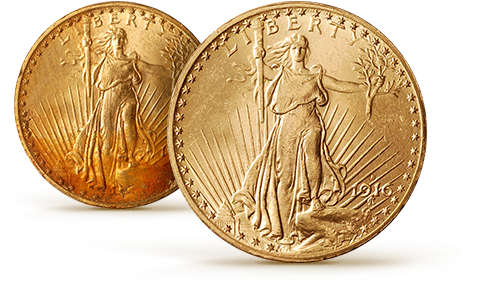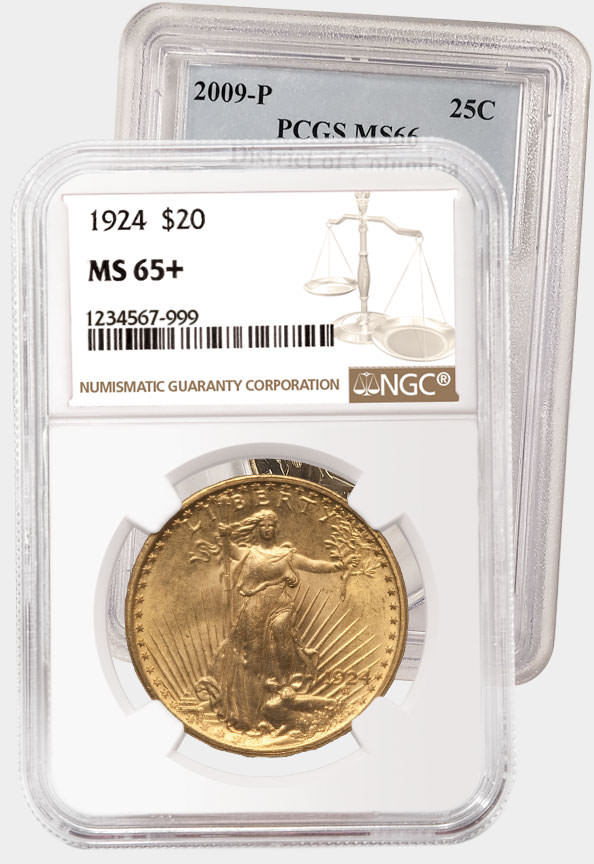Reveal Your Coins’ True Beauty
The professional conservationists at NGC use a variety of proprietary techniques to remove harmful contaminants, stabilize and protect a coin’s surfaces and, in many cases, improve a coin’s eye appeal. Since, 2001, NGC has conserved more than 1 million coins, tokens and medals.

A professional approach to numismatic conservation
From within a state-of-the-art secure facility, NGC’s conservationists use a variety of proprietary techniques to remove harmful surface contaminants, stabilize and protect a coin’s surfaces, and improve eye appeal. The American Numismatic Association (ANA), the only coin collecting organization chartered by US Congress, and the Professional Numismatists Guild (PNG) have named NGC their conservation service of choice. Read more >
Entrusted with the world’s most extraordinary coins
NGC has conserved and preserved many of the world’s most important numismatic rarities and collections, including pieces from the Smithsonian Institution. In addition to these rare and valuable vintage coins, NGC has handled coins recovered from four major shipwrecks along with countless modern coins.
What is numismatic conservation?
Collectible coins are susceptible to damage and changes of appearance as a result of improper storage and packaging, adverse environmental effects, mishandling, and natural changes over time. Surface contaminants such as PVC and other residues, soils, tarnish, spots and encrustation can diminish eye appeal and even permanently damage coins.
NGC pioneered a professional approach to numismatic conservation and can safely remove these harmful surface contaminants and often dramatically improve a coin’s eye appeal. Unlike improper cleaning, which will permanently impair a coin’s surfaces, professional conservation from NGC reveals a coin’s originality.
NGC will never perform repairs such as filling holes or smoothing scratches, or do any type of mechanical alteration. The techniques used by NGC are non-invasive and widely accepted by industry experts.
Join now to submit your coins to NGC!
Join todayWhat NGC Conservation can do
Prolonged exposure to an unstable environment can cause coins of all types to develop haze, spots, encrustation, verdigris, corrosion and tarnish. NGC specializes in the removal of these harmful surface contaminants and the stabilization of a coin’s surfaces. Read more >
Conservation for vintage and modern coins alike
All coin types can be affected by surface contaminants and negative environmental reactions. In many cases, coins have been stored or sold in soft plastic flips or mint packaging that contains polyvinyl chloride (PVC), a chemical now known to slowly leach onto the surfaces of a coin. If not safely removed, PVC and other residues will eventually result in permanent damage.
Some of these issues will make a coin ineligible for grading by NGC, if not first addressed by professional conservation. After conservation by NGC, coins will be sent directly for certification and, depending on the surface condition, will be numerically graded or NGC Details graded.
Important Note: Many coins are artificially toned or have had substances applied in attempt to hide other problems such as scratches or improper cleaning. These issues may become apparent after NGC removes the artificial toning or applied substances, but they are in no way caused by NGC’s conservation techniques. None of NGC’s techniques will cause scratches or an “Improperly Cleaned” notation at NGC.

PVC, glue and dip residues
Residue caused by PVC holders, glue or dip chemicals can often be safely removed by NGC Conservation. If left untreated, these residues can permanently damage a coin’s surfaces. Many modern Chinese coins have been sold in packaging that contains PVC.
What NGC Conservation cannot do
Though NGC Conservation benefits many coins, there are certain problems that cannot be remedied, such as corrosion, wear, scratches, and white “milk” spots. NGC does not make repairs and, likewise, cannot undo mechanical alternations. Read more >
Important Note: Hairline scratches and other surface issues caused by improper cleaning are often disguised with artificial toning or applied substances. Artificial toning and applied substances can be removed by NGC Conservation, which will then reveal the improper cleaning underneath. None of NGC’s techniques will cause an “Improperly Cleaned” notation at NGC.

White “milk” spots on modern silver coins
This form of corrosion is caused by the mint’s manufacturing process and can develop anytime, from right after striking to many years later. NGC cannot remove these unpredictable spots, but rest assured that none of NGC’s techniques cause them, either.
White “milk” spots can negatively impact a coin’s grade at NGC, but NGC cannot be liable for spots that occur after encapsulation. The NGC Guarantee specifically excludes coins “exhibiting environmental deterioration subsequent to certification. These issues include but are not limited to spotting, hazing, PVC and corrosion.”
Learn more about white spots >
The NGC Conservation Process
-
NGC conservationists evaluate your coin
NGC first evaluates a coin to determine if it will benefit from conservation. If it will not benefit from conservation, the coin goes directly to grading.
-
NGC conserves your coin
If NGC determines that a coin will benefit from conservation, it performs the necessary conservation techniques. After conservation is complete, the coin proceeds to grading.
-
NGC Grades your coin
After conservation, coins are seamlessly transferred to authentication, grading and encapsulation. Once the coin has been graded and encapsulated, it is shipped back to the submitter.















